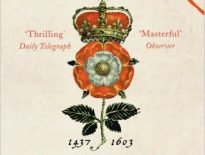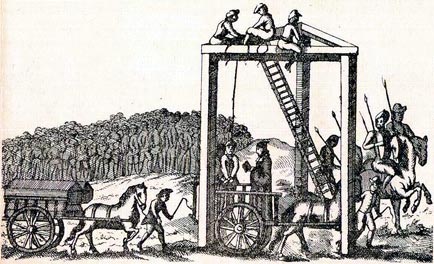Thank you so much to Tudor Society member Michelle for inspiring today's Claire Chats video talk on Acts of Attainder, what they were, how they were used and why Mary I reversed some.
Notes and Sources
- "Parliamentary Attainder in the Reign of Henry VIII" by Stanford E. Lehmberg, The Historical Journal, Vol. 18, No. 4 (Dec., 1975), pp. 675-702, Published by: Cambridge University Press, https://www.jstor.org/stable/2638511
- Lingard, John (1840) A History of England, from the First Invasion by the Romans, Fifth Edition, Volume III, Baudry's European Library, Paris.
- "Attainder", Luminarium Encyclopedia, Excerpted from: Encyclopedia Britannica, 11th Ed. Vol II. Cambridge: Cambridge University Press, 1910. 879.
- "Acts of the Parliament of England/Mary I", Wikisource - https://en.wikisource.org/wiki/Portal:Acts_of_the_Parliament_of_England/Mary_I
- "Bill of Attainder Definition", Duhaime's Law Dictionary, http://www.duhaime.org/LegalDictionary/B/BillofAttainder.aspx
- Attainder (sometimes "Bill of attainder" or "Act of attainder"), https://tudorhistory.org/glossaries/a/attainder.html



Oh, wow! Thanks, Claire! That was an awesome explanation. I appreciate you taking the time to take my comment further and explain this. Michelle t
What a wonderful explanation of this legal trap which was useful for the crown. As well as a way of getting land I guess it also saved a lot of time and trouble. It. was mostly used for rebel leaders in the Middle Ages but an interesting Act of Attainder which was refused, that is the King didn’t give his consent to the death penalty was that of Lady Margaret Beaufort. As the mother of the man who was after Richard Iii and his crown, she plotted with Elizabeth Woodville and Buckingham to help her son invade in 1483. The Rebellion of course failed but Margaret was in the middle of it all. Her husband was Lord Thomas Stanley and he was suspected but only for a short time and proved he was not involved. The Act was read in the first and only Parliament of Richard iii, but the condemnation was refused by the King. Her property, land and wine were given into the control of her husband and Margaret under watch and house arrest. She was spared, however. As a traitress it is clear she could have faced execution, but her sex and status probably saved her as did her husband’s position. It was an interesting case and it demonstrates perfectly what you refer to in the video. A number of Acts of Attainder were also read against those who fought against Henry Vii who dated his reign to the day before Bosworth but many were reversed as people made their peace with the new King. Interesting also that Henry hadn’t signed the one condemning Kathryn Howard.